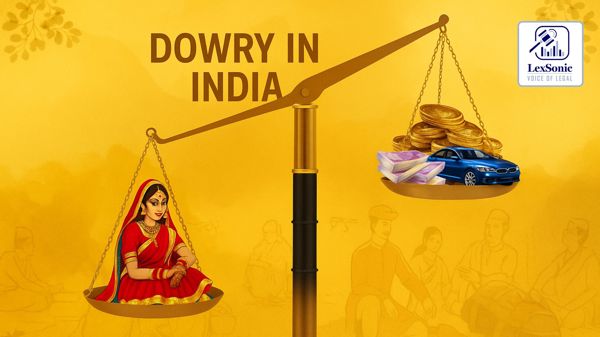Supreme Court Quashes Dowry-Related Case: Key Insights into 'Stridhan' and Legal Standing.
29 August 2024
Criminal Appeals & Suspension of Sentence >> Criminal Law | Dowry >> Marriage Law
The Supreme Court recently overturned a decision by the Telangana High Court in a case involving allegations of criminal breach of trust and dowry-related offenses. The case, rooted in a family dispute over property and gifts, highlighted significant legal principles regarding the ownership of 'stridhan' and the jurisdiction of criminal proceedings. This article delves into the details of the case, the legal arguments presented, and the Supreme Court’s final judgment.
Background:
The dispute began with a complaint filed by Padala Veerabhadra Rao (the complainant) against the former in-laws of his daughter, Padala Sujana Sheela Kumar. The complaint centered around the non-return of gold ornaments, given as part of the dowry during her marriage in 1999. The marriage between Sujana and her former husband ended in divorce in 2016, and the complainant sought the return of the ornaments from the former in-laws in 2021.

Key Facts:
Marriage and Divorce: The complainant’s daughter married in 1999, but the marriage was unsuccessful, leading to a divorce in February 2016. All marital property issues were resolved through a Separation Agreement in the U.S., where Sujana later remarried in 2018.
Complaint and Investigation: The complainant lodged an FIR in January 2021, claiming that the ornaments, considered 'stridhan,' were not returned by his daughter's former in-laws. Despite requests, the ornaments were allegedly not recovered. An investigation ensued, resulting in a charge-sheet under Section 406 of the IPC and Section 6 of the Dowry Prohibition Act, 1961.
High Court Ruling: The Telangana High Court denied a quashing petition filed by the former in-laws, asserting that the allegations were triable and thus, refused to exercise inherent powers under Section 482 of the CrPC to quash the proceedings.
Legal Principles:
The Supreme Court’s review of the case centered on several key legal principles:
Ownership of Stridhan: The Court reaffirmed the principle that 'stridhan'—property given to a woman during marriage—is solely her property. The landmark cases of Pratibha Rani v. Suraj Kumar and Rashmi Kumar v. Mahesh Kumar Bhada established that a woman has absolute rights over her 'stridhan' and can manage it independently of her husband or other relatives.
Jurisdiction and Locus Standi: The Court emphasized that a father does not have legal standing to claim the return of 'stridhan' on behalf of his daughter once she is of legal age and capable of handling her own affairs. The daughter, in this case, had not authorized her father to initiate criminal proceedings for the recovery of her 'stridhan.'
Delay and Laches: The Supreme Court scrutinized the timing of the complaint. The delay of over five years since the divorce and more than three years since the daughter's remarriage was considered unreasonable. The Court noted that such a delay, coupled with the lack of explanation, undermined the validity of the complaint.
Absence of Evidence: The Court found that the complaint lacked concrete evidence to substantiate the allegations of criminal breach of trust. There was no proof that the ornaments were entrusted to the in-laws or that they were misappropriated.
Supreme Court Judgment:
The Supreme Court ruled in favor of the appellants, quashing the proceedings initiated by the complainant. The Court found that the complaint was not maintainable due to:
- Lack of Authorization: The complainant had no legal standing to initiate the proceedings on behalf of his daughter, who was entitled to manage her own 'stridhan.'
- No Cognizable Offense: The allegations did not fulfill the essential ingredients of a criminal breach of trust as defined under Section 406 IPC.
- Unreasonable Delay: The substantial delay in filing the complaint and the failure to provide a satisfactory explanation were deemed significant.
Conclusion:
The Supreme Court’s decision underscores critical legal concepts regarding the ownership and recovery of 'stridhan,' the role of family members in legal proceedings, and the impact of procedural delays. The judgment reinforces the principle that personal grievances should be addressed with due diligence and not used as a tool for harassment or revenge. The quashing of the proceedings reflects a commitment to upholding justice and ensuring that criminal law is applied appropriately and fairly.
